- Home
- Seanan McGuire
Lightspeed Magazine Issue 49 Page 5
Lightspeed Magazine Issue 49 Read online
Page 5
Now that she has seen his bones, she feels a great affection for the dead man. Maureen can barely remember a time when she did not love his bones. She feared him, but why? She makes the computer tell her the name of each bone. Now that he is transmuted, transformed, she runs the names of his bones across her teeth and tongue, savoring each one. Scapula, clavicle, sacrum, tibia! Such bliss! She counts the subtle bones of his wrists, scaphoid, lunate, triquetral, pisiform, capitate, hamate, trapezium, trapezoid.
She holds his delicate hyoid bone in her hand and works her throat, trying to feel her own hyoid. Her mind bubbles with ideas. She calls for more foam clay.
The dead man’s empty eye sockets are open, forever sleepless. “I love you,” Maureen murmurs as she shapes the foam around his hyoid. “I hope you know that. I hope—anyway, I hope. You’re going to be beautiful. You’re going to be the most wonderful gift.”
The computer mutters a request for clarification. She ignores it.
Not even the computer’s throbbing drone can ruin her mood. This was why they gave her the fellowship, why she was chosen from all of the artists who’d applied to go into space, to fly to Hippocrene (what was the shape of the world’s true name, she wondered, was it shaped like a bone, like a shirt), to hurtle in a speck of a starship that bent vacuum and numbers around itself (and she knew the shape of that, little room fourteen by twenty by sixteen, it didn’t really matter which way was up), to bring to the long-tongued people all the shapes that her soul could hold.
She uses each bone from the small to the large, except for the tiny ones the computer claims were in each ear. She thinks that perhaps they went missing when the meat inside the dead man’s head became liquid and oozed out of the net. The liquid clung like a foul cloud around the skull before she vacuumed it away. She hadn’t loved the dead man’s bones, then, she hadn’t been so careful.
At the back of the dead man’s skull is a depression. The edges of the depression are cracks, and baby cracks run away from those big cracks. She fingers the edges; they nudge sharply at her fingertips. She feels something fluttering at the edge of her mind. Something is trying to get in.
The dead man was a big man, before he was dead. Maureen clings to that. She carries his skull to the worktable that is the center of the chamber inside the ship that holds and sustains her life, her beating heart, the fluid that whooshes through her ears.
She covers the depression in the dead man’s skull with beauty.
• • •
She wakes when the computer throbs into her jaw, Deceleration complete. Orbit around Hippocrene established.
Maureen sits straight up and whacks her head on the ceiling of her cubby. “Ow! Is someone—I mean, has there been any contact from the planet?”
No.
“What now?”
Analysis commencing.
She rubs her head where it hurts. The dead man’s embellished skull is fastened to her worktable with unraveled netting, and she goes to release him from his bonds. The ridges of his bones are covered in foam clay, swirling in colors of green and gold. Maureen runs her hands over the dead man’s skull, closing her eyes. The embellishments are not just decorations; there are universes of meaning in how the cheekbones are built up, how the dots are arranged on the jaw.
She secures the sculpture into the last cradle, so the ship can deliver him along with the rest of its payload. Her best work, hers and the dead man’s. “It was a cooperative effort,” she imagines herself saying at the awards ceremony. Ceremonies. Surely there will be many of them.
She imagines Hippocrene hanging below her—above her?—like a swollen ornament. It was yellow and red, she remembers from the pictures. Yellow and red and blue patched like she remembers the dead man’s skin being before it went to liquid. Swirled together. She wishes there were a window.
She returns again and again to open the cradle and caress the dead man’s skull. Anxiety gnaws at her throat, trying to find her hyoid bone. They will hate it. They will reject her and the dead man. Why is she here? She is a fraud, an imposter—
Analysis complete. Changes in the spectrum of the star XC-233540 Aleph-Fourteen, also known as Seraph Minor, indicate that objective time has passed more quickly relative to subjective time than originally anticipated.
“What?”
We are late.
“Shit.” Maureen’s stomach twists. She flexes her legs and sends herself tumbling to the floor; she bounces and snags a wall brace thoughtfully. “Have you been able to contact anyone?”
There is no response to my hail. The surface of the planet appears to have been rearranged. It is possible that the government of Hippocrene that we were originally contacted by is no longer intact.
How can that possibly be?
She asks. Yet again, she does not understand the answer. She retrieves the dead man’s skull from its cradle and presses the curve of his cranium against her abdomen. The ridges of the embellishments press against her navel; protrusion meets indentation and all is well for a single moment.
Maureen floats, wrapped around the skull. After a time, she is followed around the chamber by round drops of glittering water, eddying in her wake.
• • •
He was a big man, before he was dead. You can tell by the width and breadth of his thighbone, the heaviness of his pelvis. Not fat, just big. Muscular. Athletic. All of those words shaped like strength.
Maureen is a small woman. Smaller now than she was two subjective years ago. A little wasted. She only came up to the dead man’s armpit, when he was alive. She is not shaped like strength; she is shaped like a little delicate bone, her skin hangs loose. She orbits Hippocrene in her tiny automated spaceship that tells her that her aliens, her buyers, have apparently lost interest in space flight and communicating with the galaxy.
They do not want the dead man! How could they not want the dead man when she so lovingly crafted him for them, so they could learn the shape of the human soul? How could they evince no interest in this thing she could teach them?
She fastens the dead man’s skull into the cradle. She opens all the other cradles, views one by one the bones fastened together with clay foam. They are words, sentences, saying all the things her mouth has always been too clumsy to say. The sculptures are in the shape of an apology.
Then she closes the panel and says, “Deliver them.”
She hears rumbles and pings as the spaceship’s proboscis extends. It will be gentle. The sculptures will float in orbit behind and below the ship; they will run into debris, they will break apart, they will crack, and the dead man’s final resting place will be around the planet that rejected him and Maureen both. Perhaps his orbit will decay like the rest of him already has, and he will fall and burn.
Perhaps the dead man will be a falling star; perhaps one of the Hippocrene below will taste his ashes in their eternal tongue-probing for wisdom. Perhaps they will build the dead man anew from the things they find in his cinders.
All these things are possible, in their way.
The dead man was once not a falling star, not a sculpture, and not dead. He was once someone that Maureen loved very much. She remembers this now. He was angry at her, for leaving. For going to the stars. She was going away forever. Forever, for him, meant beyond the time when his body would fail him and when his eyes would close and he would be burned and then slotted into a wall, in the old style. He had come to the Moon with her. He had come with her to try to talk her out of going out to the stars, to Hippocrene where they sculpt with resin from their mating-places.
Maureen, you have to come to your senses. You can’t do this. Don’t leave me. The big man shook her, and shook her.
You can’t be here, she screamed at him. You have to go. They’re about to close the doors.
She was a small woman, and not strong, but when she shoved him away he stumbled and lost his balance. He fell. His head cracked against the wall.
If she had called for help, if she had opened up the radio an
d said, my husband has had an accident, they would have stopped the launch. The universe of mathematics is unforgiving, and the launch window was narrow. If she had missed it, the next window was thirty years away, and she would have been too old.
She would have been too old to go to the stars and have aliens appreciate her for her work the way humans never had.
The ship bends the bones of space around itself and breaks orbit. They are returning to the Moon, to Earth, to a sweet yellow star they call Sol; to histories that already have her name in them, to ceremonies that have taken place without her, to new forms of art that she will not understand.
The engines of her ship grumble and bump and falter and recover. Maureen is hurtling now. She knows what shape this journey has taken, knows all the secret names and shapes of her bones. She does penance in her hermitage, alone. Her breaths become shallow, and shallower still.
When she arrives, she will show everyone the shape of the word, the word shaped like bones, the bones shaped like apologies, the apologies shaped like the world.
© 2014 by Kris Millering.
Kris Millering is a linguist by training, a content manager by trade, and a writer and photographer by avocation. Her fiction has appeared in Beneath Ceaseless Skies and The Colored Lens, and she attended Clarion West in 2009. Currently, she is working on a novel and an open-source roleplaying setting, as well as managing communications for Clarion West. A native Californian, she spent four years in Iowa and now lives between two mountains in the foothills of the Cascades in Washington State. Her obsessions include osteology, forensic pathology, storytelling with video games, and dragons. You can find out more at www.krismillering.com.
Cuts Both Ways
Heather Clitheroe
Art by Elizabeth Leggett
The kids know he’s coming to visit. They’ve been texting him to tell him about the snow and how cold it is, and they helpfully send links to their Amazon wish lists with pages of moon-eyed dolls and odd sets of dueling robots and creatures sold according to series. The things they like are incomprehensible to him, but they know he’s good for it. Uncle Spencer always comes through. His sister emails to promise that it’ll be a quiet Christmas. Just family, Erin says. He can come home and relax, and she’ll take care of everything. She tells him she can’t wait to see him. It’s been too long.
He stands in line at the airport, waiting to approach the security gates. The Distributed Arbitrage paperwork is in his hand. As soon as he hits the checkpoint, the alarms goes off. He holds the papers out as three security agents converge on him. “I’m a forecaster with DA?” he says. He doesn’t mean for it to sound like a question, but their mood is patently apparent to him. Heightened concern and a trickle of alarm. He follows them to the room with the metal door and submits to the search.
“Take off your sunglasses, sir.” And he does, wincing at the bright lights. He lifts his shirt when they tell him to, and one of the agents raises his eyebrows at the tracework of scars across his torso. They run a metal detector wand up and down, it predictably emits a piercing tone from his belt to his head. The papers should be enough, but there’s always curiosity to satisfy; everybody wants to see it, to look at his scars and the ports that have to be flushed every three weeks with heparin and the smooth panels where cables can be connected. What they want to see most of all is the soft green glow from the strips of monitor LEDs along his ribs just under the skin that tell him, at a glance, that his system is functioning properly. Everybody wants a look. It’s so mysterious; it’s so enthralling. In this small, enclosed space, their interest is lurid. From the waist up, he’s not entirely human. DA calls it augmentation. Cyborg sounds too kitschy.
They all want to see it. They always think it’s the equipment that makes him special. What they don’t understand—what they will never understand—is how it feels. No self. No other. Points of light brighter than a thousand suns, shining in the howling dark of the storm. The thrill of riding it sings through every nerve in his body. They are too normal, too human. They can’t feel it the way he does.
They open his suitcase. An agent mutters about the syringes and meds he’s carrying. Spencer gives them copies of the prescriptions. Distributed Arbitrage keeps its own medical staff, and they provide documentation for travelling casters. That should be enough, too, but the agent lifts the vials and pill bottles to the light and Spencer has to explain. This one for inflammation. This one for blood pressure. That’s an anti-rejection. Those for pain. Yes, I have prescriptions for all of them. The man pulls it all out of his suitcase, lining everything up on a stainless steel table. Another agent stands just to one side, watching. The third, a woman, leafs through the paperwork, her eyes narrowed as she reads.
It’s all in order. Satisfied—and a touch disappointed—the men saunter out. The woman watches him repack his bag. He scoops the medication together, the little glass vials clinking.
“Forecaster, huh? Seems like a lot of trouble for a job,” the agent observes, and she writes something on his boarding pass and hands it back to him.
“Maybe.” Spencer puts his sunglasses and baseball cap back on. His hands shake.
“Can you really see the future?”
“It doesn’t work that way,” Spencer says.
“But you can tell what people are thinking?”
“Not quite. More like what they’re feeling.” He zips up the suitcase and heaves it off the table. “Am I done?”
“Sure.” She smiles briefly at him. “Just one question,” she says. That’s what they all say. “I read somewhere you guys remember everything. Is it worth it?” She leans forward a little, mouth opened slightly—she can’t help herself. She probably hasn’t seen many casters coming through regular security screening. He feels her interest, feels himself responding to it. Oh, she is fascinated by him. He inhales sharply, concentrating, and the feeling is cut off. She has no idea he was reading her.
“Must be,” he says, and he leaves, aware that several people are lifting their cell phones, thinking he’s some kind of a celebrity. In his nervousness, it bleeds through. Interest, envy. He knows how they see him. Scrawny guy in dark glasses and a baseball cap, escorted around the security lines. Of course they should take a picture, just in case he’s somebody important. You never know.
• • •
Megan booked him into business class. An older man sits beside him, flipping idly through a magazine. Nice suit, good shoes. The man scowls at something he’s read. Spencer can feel it in the back of his neck, a prickling tingle, even though he’s supposed to be offline. Hypersensitivity is something he should report to medical. He takes his sunglasses off—it’s rude to leave them on, that’s what the man is thinking—and regrets it almost right away, squinting a bit at the light and reaching to close the shade.
“It has to stay up, sir,” says the flight attendant. “Until takeoff, please.”
“Right.” He puts the sunglasses back on and closes his eyes, trying to ignore the man’s lingering disapproval. It would have been better if he’d flown on a DA jet. The flight attendants don’t say anything when casters creep on board and sit in the semi-dark. They leave them alone. But with the holidays coming, everybody’s trying to get away, and there are only so many seats to go around. Spencer watches people filing past him to get to economy, wishing he’d had an excuse ready when Megan told him Erin had emailed her to ask about his schedule. Megan brought it up over coffee, as she handed him expense reports to sign.
“You’re going home for Christmas, right? Did you call your sister back?”
“I thought I’d just stick around.”
“And do what?”
“I don’t know. Stuff?”
“You’ll just end up coming in to work. Why don’t you go home? When’s the last time you saw your family? Listen, if you’re going to go, tell me soon so I can take care of the tickets.”
A woman carrying a crying baby struggles down the aisle. It’s been a long time since he saw his sister�
��s kids. It’s not like he doesn’t want to see them, he tells himself. Just that he’s in transit most of the time, moving from one assignment to the next. Singapore. Beijing. London. Dubai. Berlin. Megan’s the one who remembers to pick up souvenirs in the airports and trolls the hotel gift shops for things his niece and nephews will like. How old are they now? He can’t remember. Megan would know. She takes care of everything, from reminding him to make birthday phone calls to booking jobs for him—she is his handler. DA likes to call them administrative assistants.
Spencer lets his mind drift, and it wanders in a direction it often takes. Megan. She’s the closest thing he has to a friend, the one good thing in his life. A girl with cool blue eyes and blonde hair that she covers with a scarf when they’re in the Middle East, who can paint her nails even when the airplane is bouncing with turbulence. If they’re called in for an emergency assignment, she never fails to turn up with her go bag in her hand, completely unruffled and without complaint. Even on a Friday night when she looks like she’s come straight from a nightclub in heels and a tight dress. They joke about being joined at the hip, but he doesn’t really know that much about her. She knows everything about him, but Megan doesn’t talk much about her personal life. She’s all business. She’s good at what she does. DA pays her to be the best.
Six weeks ago, she’d sat quietly in a room in a safe house and waited with him. They’d arrived in Damascus wearing bulletproof vests, driven through dark streets in the back of a van with armed escorts. It was the only time he’d seen her look scared. Her smile was strained, and she’d glanced at the men with guns with a trepidation Spencer hadn’t seen before. He’d been so busy trying to shut down everything around him, concentrating on emptying out, trying to get the first read. He hadn’t been able to think of anything comforting to say, though he’d seen her mute appeal.
But when the last cast was finished, she’d handed him a folded square of gauze for the nosebleed. She’d pressed her hand to his forehead as he vomited on the dirty floor and injected painkillers because he couldn’t keep the pills down. She’d buckled the seatbelt for him when they put him in the van. Asked for help carrying him to the helicopter and then strapped him in the seat, putting an airsick bag in his hands and a cold compress on the back of his neck. She was in control then, not afraid, deftly checking the colour of the LEDs as he batted weakly at her, trying to push her away. She’d given him something stronger, something that burned as it went in, melting him around the edges. He’d felt something before passing out: a wave of love and regret. Reeling, he realized that she was holding his hand.

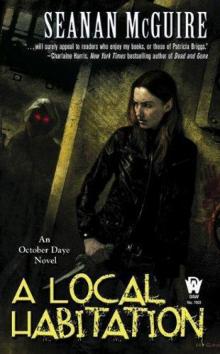 A Local Habitation
A Local Habitation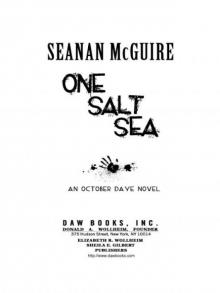 One Salt Sea
One Salt Sea Beneath the Sugar Sky
Beneath the Sugar Sky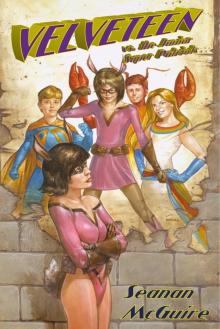 Velveteen vs. The Junior Super Patriots
Velveteen vs. The Junior Super Patriots The Girl in the Green Silk Gown
The Girl in the Green Silk Gown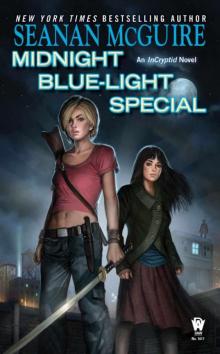 Midnight Blue-Light Special
Midnight Blue-Light Special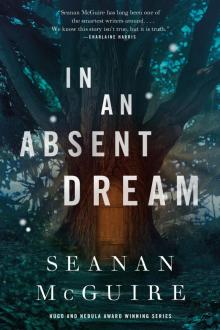 In an Absent Dream
In an Absent Dream Chaos Choreography
Chaos Choreography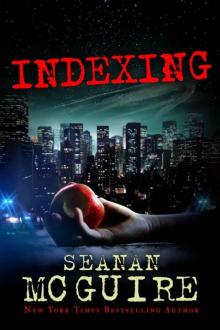 Indexing
Indexing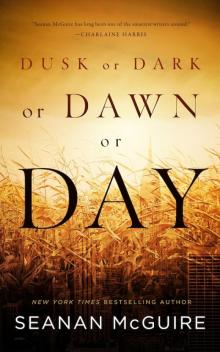 Dusk or Dark or Dawn or Day
Dusk or Dark or Dawn or Day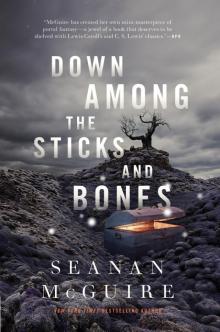 Down Among the Sticks and Bones
Down Among the Sticks and Bones The Razor's Edge
The Razor's Edge Midway Relics and Dying Breeds
Midway Relics and Dying Breeds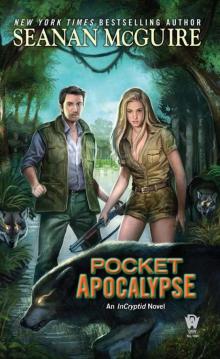 Pocket Apocalypse
Pocket Apocalypse The Brightest Fell
The Brightest Fell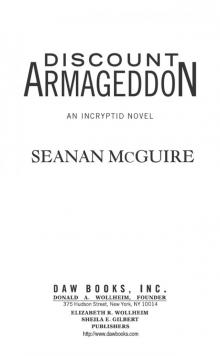 Discount Armageddon
Discount Armageddon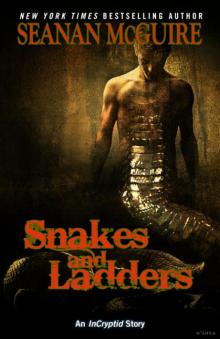 Snakes and Ladders
Snakes and Ladders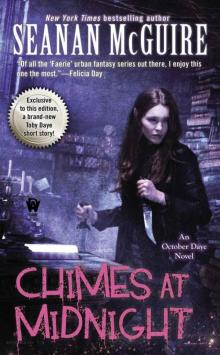 Chimes at Midnight
Chimes at Midnight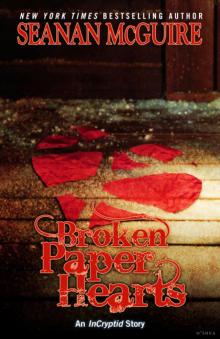 Broken Paper Hearts
Broken Paper Hearts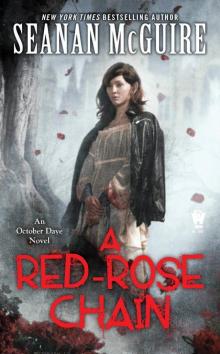 A Red-Rose Chain
A Red-Rose Chain Married in Green
Married in Green Sparrow Hill Road 2010 By Seanan
Sparrow Hill Road 2010 By Seanan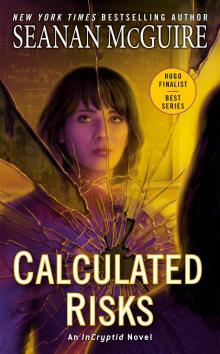 Calculated Risks
Calculated Risks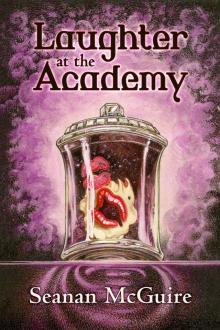 Laughter at the Academy
Laughter at the Academy The Winter Long
The Winter Long We Both Go Down Together
We Both Go Down Together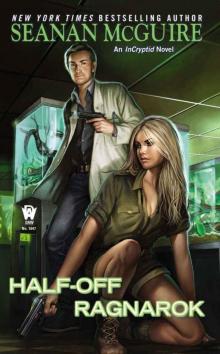 Half-Off Ragnarok
Half-Off Ragnarok Velveteen vs. The Seasons
Velveteen vs. The Seasons Boneyard
Boneyard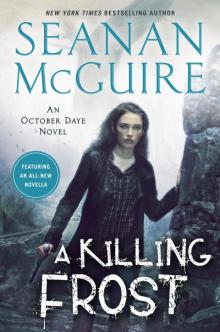 A Killing Frost
A Killing Frost Late Eclipses
Late Eclipses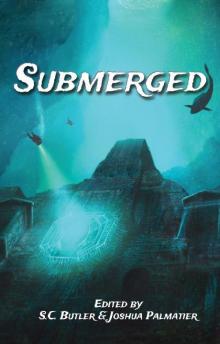 Submerged
Submerged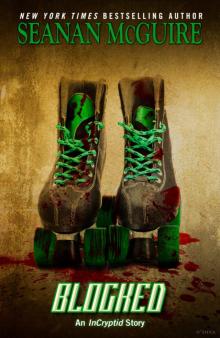 Blocked
Blocked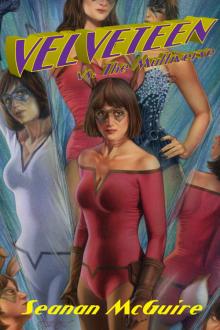 Velveteen vs. The Multiverse
Velveteen vs. The Multiverse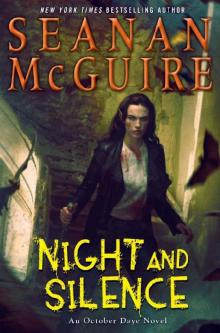 Night and Silence
Night and Silence The Unkindest Tide (October Daye)
The Unkindest Tide (October Daye)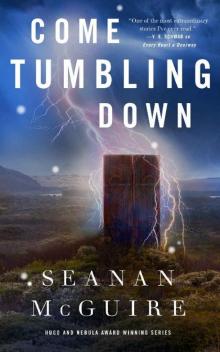 Come Tumbling Down (Wayward Children)
Come Tumbling Down (Wayward Children)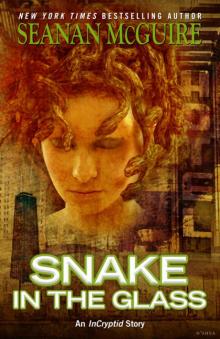 Snake in the Glass
Snake in the Glass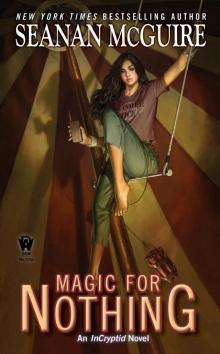 Magic for Nothing
Magic for Nothing Full of Briars
Full of Briars Oh Pretty Bird
Oh Pretty Bird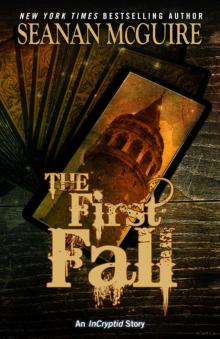 The First Fall
The First Fall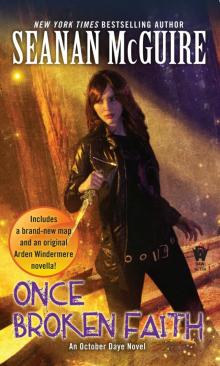 Once Broken Faith
Once Broken Faith My Last Name
My Last Name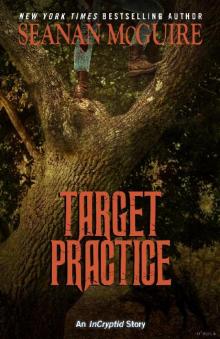 Target Practice
Target Practice Wayward Children 01 - Every Heart a Doorway
Wayward Children 01 - Every Heart a Doorway Sparrow Hill Road
Sparrow Hill Road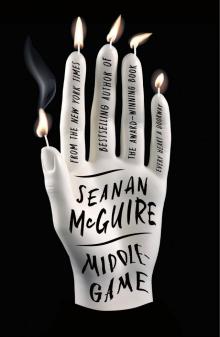 Middlegame
Middlegame Juice Like Wounds
Juice Like Wounds That Ain't Witchcraft
That Ain't Witchcraft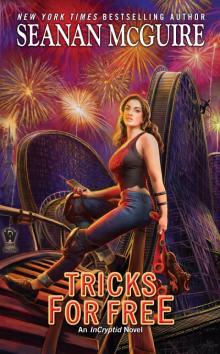 Tricks for Free
Tricks for Free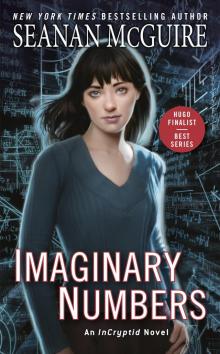 Imaginary Numbers
Imaginary Numbers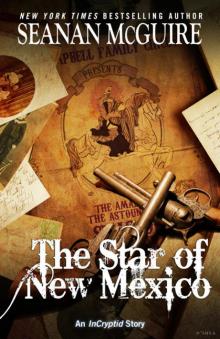 The Star of New Mexico
The Star of New Mexico Lay of the Land
Lay of the Land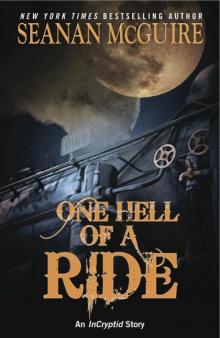 One Hell of a Ride
One Hell of a Ride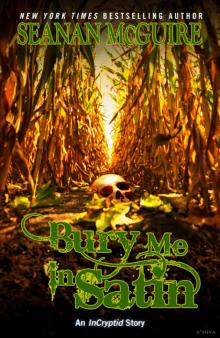 Bury Me in Satin
Bury Me in Satin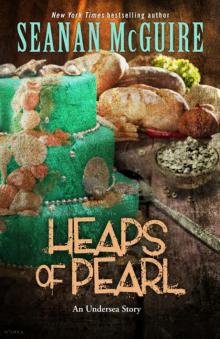 Heaps of Pearl
Heaps of Pearl Sweet Poison Wine
Sweet Poison Wine When Sorrows Come
When Sorrows Come Every Heart a Doorway
Every Heart a Doorway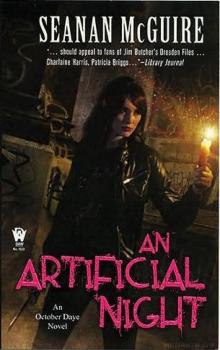 An Artificial Night - BK 3
An Artificial Night - BK 3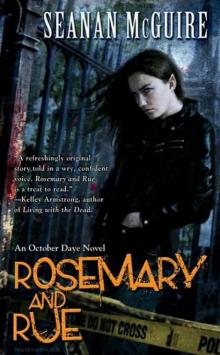 Rosemary and Rue
Rosemary and Rue Black as Blood
Black as Blood Loch and Key
Loch and Key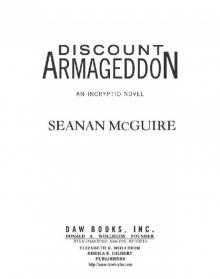 Discount Armageddon: An Incryptid Novel
Discount Armageddon: An Incryptid Novel The Unkindest Tide
The Unkindest Tide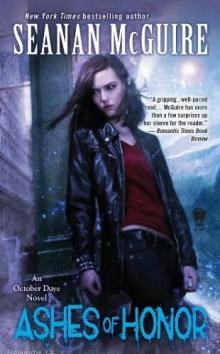 Ashes of Honor od-6
Ashes of Honor od-6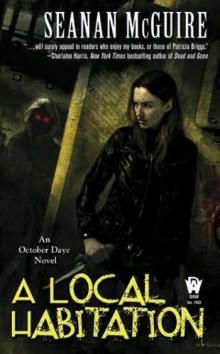 A Local Habitation od-2
A Local Habitation od-2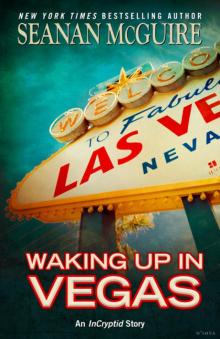 Waking Up in Vegas
Waking Up in Vegas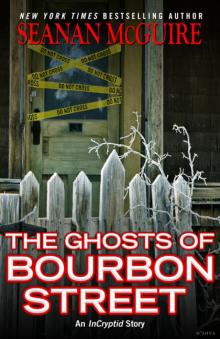 The Ghosts of Bourbon Street
The Ghosts of Bourbon Street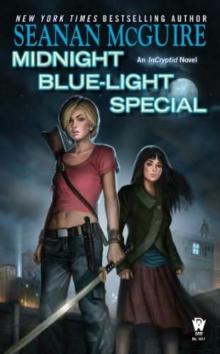 Midnight Blue-Light Special i-2
Midnight Blue-Light Special i-2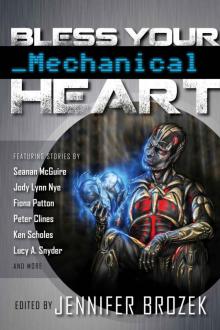 Bless Your Mechanical Heart
Bless Your Mechanical Heart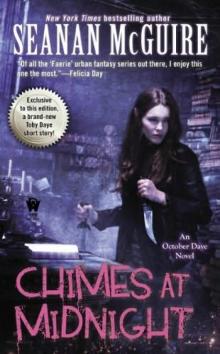 Chimes at Midnight od-7
Chimes at Midnight od-7 The Way Home
The Way Home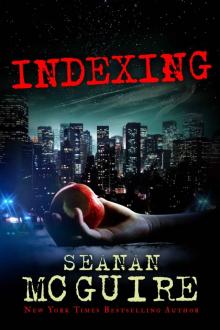 Indexing (Kindle Serial)
Indexing (Kindle Serial)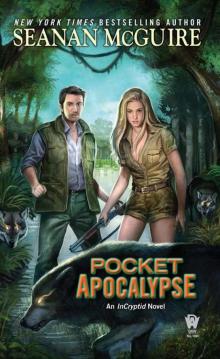 Pocket Apocalypse: InCryptid, Book Four
Pocket Apocalypse: InCryptid, Book Four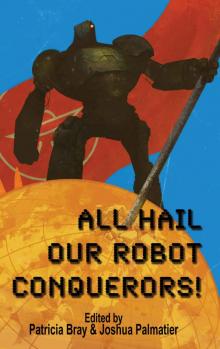 All Hail Our Robot Conquerors!
All Hail Our Robot Conquerors!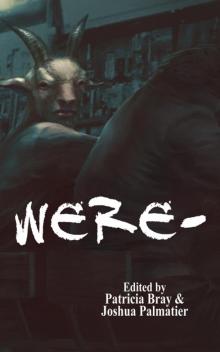 Were-
Were- That Ain't Witchcraft (InCryptid #8)
That Ain't Witchcraft (InCryptid #8)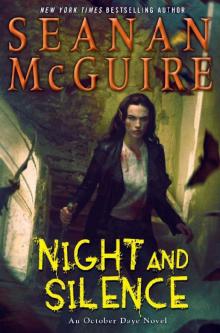 Night and Silence (October Daye)
Night and Silence (October Daye) Late Eclipses od-4
Late Eclipses od-4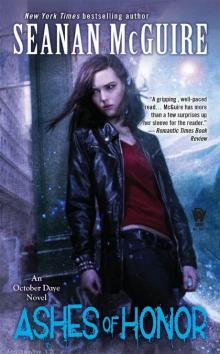 Ashes of Honor: An October Daye Novel
Ashes of Honor: An October Daye Novel Midway Relics and Dying Breeds: A Tor.Com Original
Midway Relics and Dying Breeds: A Tor.Com Original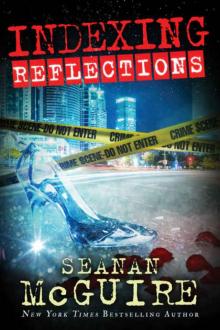 Indexing: Reflections (Kindle Serials) (Indexing Series Book 2)
Indexing: Reflections (Kindle Serials) (Indexing Series Book 2)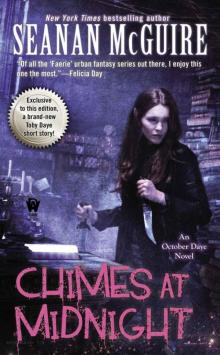 Chimes at Midnight: An October Daye Novel
Chimes at Midnight: An October Daye Novel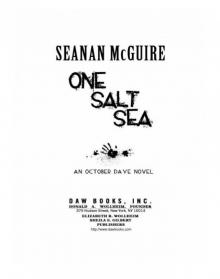 One Salt Sea: An October Daye Novel
One Salt Sea: An October Daye Novel Rosemary and Rue od-1
Rosemary and Rue od-1 Rosemary and Rue: An October Daye Novel
Rosemary and Rue: An October Daye Novel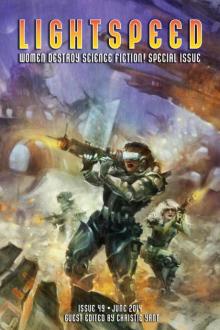 Lightspeed Magazine Issue 49
Lightspeed Magazine Issue 49 Alien Artifacts
Alien Artifacts One Salt Sea od-5
One Salt Sea od-5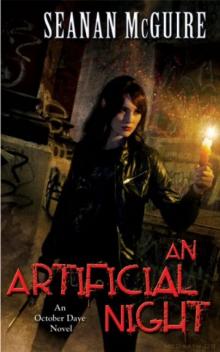 An Artificial Night od-3
An Artificial Night od-3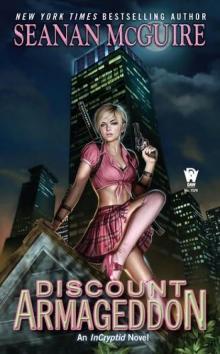 Discount Armageddon i-1
Discount Armageddon i-1